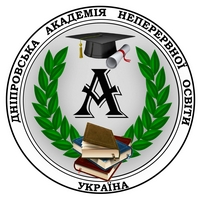THEORETICAL FUNDAMENTALS OF ENVIRONMENTAL EDUCATION OF FUTURE SPECIALISTS
Abstract
Summary. The paper substantiates that the current environmental situation forces us to re-evaluate the impact of
human economic activity on the environment and requires a review of many factors of ideological methodological and
social plan for the complex «nature-society». It is determined that one of the effective forms of solving these problems
is a properly modernized existing system of environmental education and upbringing in all educational institutions.
In the article the author, based on the generalization of scientific, psychological and pedagogical literature, recommends
to interpret the environmental education of future professionals as a personality-oriented process of forming the
environmental education of future professionals. As a result of environmental education, such a specialist will be aware
of the goals and functions of future professional activity, will have modern technologies, techniques for planning and
managing production processes, environmentally sound structure of activities through the integration of professional,
scientific, environmental, professional knowledge, skills and abilities.
The comparison of the concepts of «екологічне виховання» («environmental education») and «екологічна вихованість» («environmental education») gives the author reason to consider the first concept as a process, and the second as
a result of this process and to define environmental education as a moral quality of the individual. It is characterized by
such indicators as the ability to realize the spiritual and material value of nature, as the level of acquisition of theoretical and practical knowledge, skills and abilities to assess the impact of human economic activity; the need for active
practical activities to improve the environment, etc.
The publication, based on the generalization of scientific and pedagogical, psychological and pedagogical literature,
taking into account the needs of modern realities, defines environmental education as a moral quality of personality,
characterized by the following indicators: ability to understand the spiritual and material value of nature for society in
general; the level of assimilation of key concepts, laws, principles, scientific facts that allow to determine the optimal
impact on the environment in the process of professional activity and in everyday life; the level of acquisition of
practical knowledge, skills and abilities to assess the impact of human economic activity; the ability to anticipate the
possible consequences of their actions and prevent negative impacts on the environment in all activities; the need for
active practical activities to improve the environment and promote modern ideas of environmental protection; ability to
analyse the environmental situation; effectiveness of practical environmental activities.
References
1. Дерябо С. Д., Ясвин В. А. Экологическая педагогика и психология. Ростов-на-Дону : Феникс, 1996. 480 с.
2. Зверев И. Д. Проблемы охраны окружающей среды в средней общеобразовательной школе. Материалы межправительственной конференции по образованию в области окружающей среды. М., 1979. С. 116.
3. Лозовська І. М. Екологічне виховання старшокласників у процесі профільного навчання в ліцеї-інтернаті : дис. ...
канд. пед. наук : 13.00.07. Луцьк, 2018. 281 с.
4. Лук’янова Л. Б. Формування екологічної культури учнів ПТУ в процесі вивчення предметів професійно-технічного
циклу : автореф. дис. ... канд. пед. наук : 13.00.04. Київ, 1994. 22 с.
5. Сапожников С. В. Екологічне виховання студентів вищих навчальних закладів І-ІІ рівнів акредитації будівельного
профілю : дис. ... канд. пед. наук : 13.00.07. Херсон, 2006. 215 с.
6. Сухомлинський В. О. Вибрані твори. У 5 т. Київ : «Рад. школа», 1977.
7. Червонецкий В. В. Экологическое образование в школах развитых стран мира. М., 1992. 95 с.
8. Швед М. С. Екологічна едукація за кордоном і в Україні. Львів : Світ, 1997. 105 с.
9. Hlushak, O. M., Semenyaka, S. O., Proshkin, V. V., Sapozhnykov, S. V., Lytvyn, O. S.. The usage of digital technologies in
the university training of future bachelors (having been based on the data of mathematical subjects). Ceur workshop proceedings.
Vol. 2643. P. 210-224. URL : https://www.scopus.com/authid/detail.uri?authorId=57218488121 (дата звернення : 28.12.2021).

 ISSN
ISSN  ISSN
ISSN 

